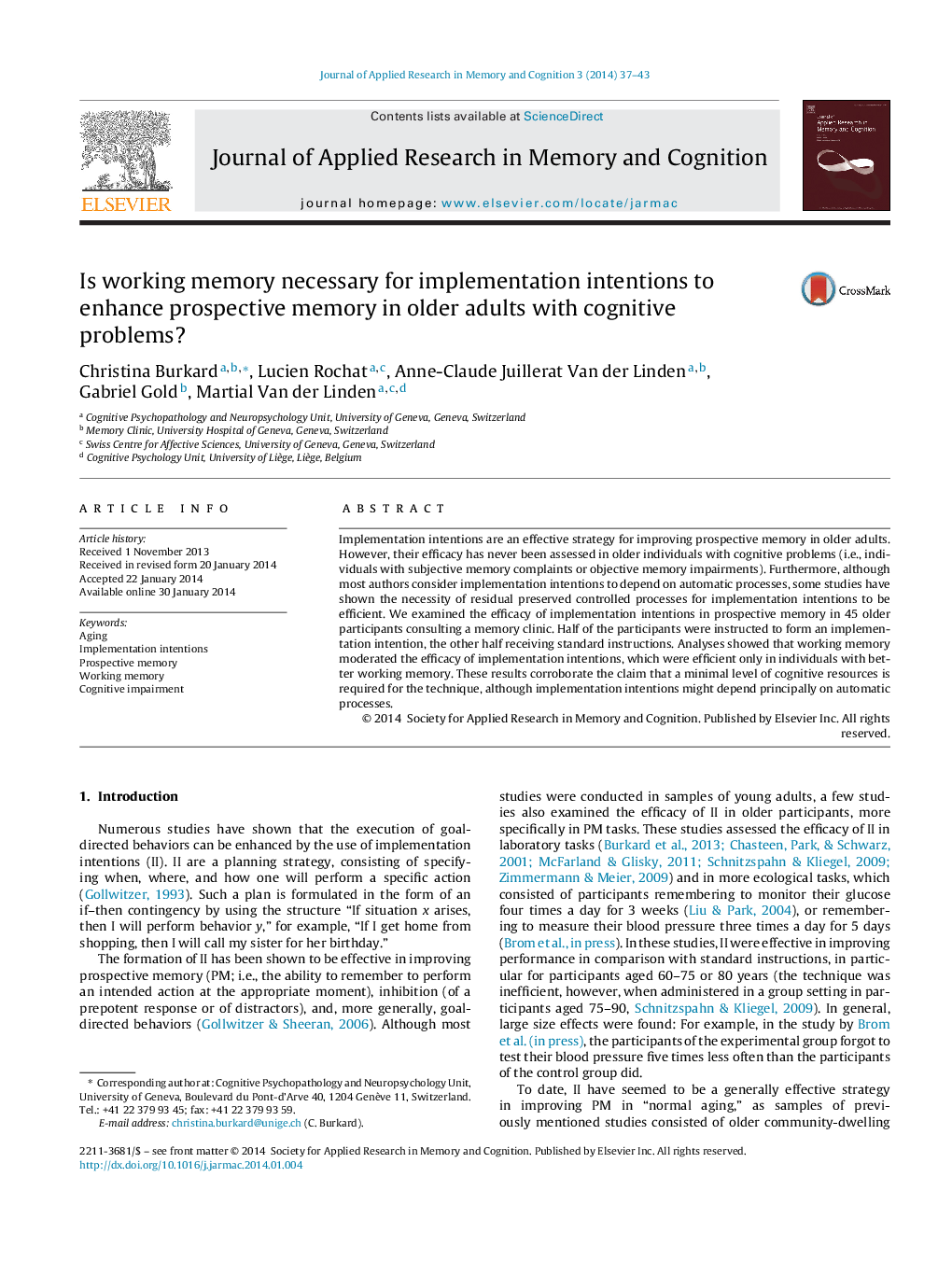| Article ID | Journal | Published Year | Pages | File Type |
|---|---|---|---|---|
| 10437192 | Journal of Applied Research in Memory and Cognition | 2014 | 7 Pages |
Abstract
Implementation intentions are an effective strategy for improving prospective memory in older adults. However, their efficacy has never been assessed in older individuals with cognitive problems (i.e., individuals with subjective memory complaints or objective memory impairments). Furthermore, although most authors consider implementation intentions to depend on automatic processes, some studies have shown the necessity of residual preserved controlled processes for implementation intentions to be efficient. We examined the efficacy of implementation intentions in prospective memory in 45 older participants consulting a memory clinic. Half of the participants were instructed to form an implementation intention, the other half receiving standard instructions. Analyses showed that working memory moderated the efficacy of implementation intentions, which were efficient only in individuals with better working memory. These results corroborate the claim that a minimal level of cognitive resources is required for the technique, although implementation intentions might depend principally on automatic processes.
Related Topics
Social Sciences and Humanities
Psychology
Applied Psychology
Authors
Christina Burkard, Lucien Rochat, Anne-Claude Juillerat Van der Linden, Gabriel Gold, Martial Van der Linden,
